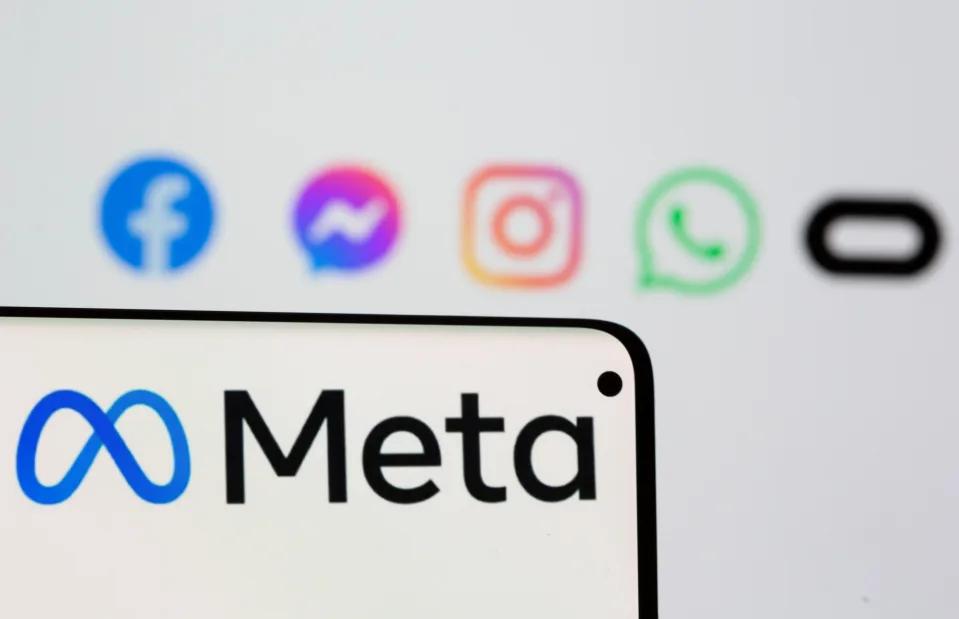In a landmark case that Rhode Island recently joined, big tech company Meta faces a lawsuit alleging business practices that are said to addict adolescents to their products.
Meta is a social media company that controls platforms like Instagram, Facebook and WhatsApp.
By the end of October, 41 state attorneys general, including Rhode Island’s Attorney General Peter F. Neronha, and the District of Columbia’s attorney general had joined this case against Meta.
Daniel Carrigg, a lecturer for the University of Rhode Island department of political science, said it’s relatively rare to have this many jurisdictions in one case. Moreover, Carrigg says that this has become a bipartisan case.
The allegations, according to Carrigg, revolve around the effect of Meta’s business model on children.
The suit claims that Meta’s practices effect children’s insomnia, depression, attentiveness issues and even suicidal tendencies, according to Carrigg.
Although the complaint has many parts that are redacted, the suit’s general allegations are available to the public.
The suit focuses on a four-part allegation that causes harm to children, according to Carrigg. Meta is alleged to have been actively trying to keep children on platforms for as long as possible, using features like endless scrolling.
Meta knowingly imposed addictive features on children, like haptic alerts and algorithms that are known to manipulate dopamine levels, according to Carrigg.
The company consistently mitigated the addictive effects on children in advertisements and public statements, Carrigg said. They, as well, downplayed their knowledge of the addictiveness of said practices.
In another allegation under violations of the Children’s Online Privacy Protection Rule, Meta collected information of children who are too young, according to Carrigg.
According to Carrigg, a whistleblower who worked for Meta released documents that were not open to the public. The documents showed information about addictive practices that Meta appears to know about.
Carrigg connected this suit to similar cases against big tobacco companies that were alleged to be gearing their advertisements towards children.
“It’s really a lawsuit around children and children’s use of these platforms,” Carrigg said.
Meta has come out with statements wishing the attorneys general would have avoided this high profile case. Carrigg said the company will likely defend their actions to avoid a large settlement.
Mark Zuckerberg, the CEO of Meta, has addressed state legislatures in the past and requested state regulations, according to Carrigg.
“What they like to say is, we’ve been calling for state federal regulations,” Carrigg said. “We’re operating without guidance because the legislation has failed to act.”
States who have joined this case likely have statutes that are violated under Meta’s actions, according to Carrigg. For example, Carrigg said Minnesota and California have tough child data laws in comparison to other states.
In Rhode Island, deceptive trade practices under general law title six, chapter 13, declares “false and fraudulent advertising as a deceptive act or practice which is declared unlawful.”
The settlement money, if won by participating jurisdictions, would likely go towards reforming children’s detrimental effects of using addictive social media, according to Carrigg.
Chris Parker, an associate professor and pre-law advisor for the URI department of political science, exemplified precedent cases that may present difficulty in these 42 jurisdictions winning the case.
This lawsuit is attempting to hold companies accountable for getting children addicted to social media platforms. Similar cases, like ones trying to ban violent video games, are often struck down, according to Parker.
These cases, Parker said, are often seen as unconstitutional due to restrictions on free speech.
“They’re going to say this is a free speech argument,” Parker said. “Restricting the ability of Meta to appeal to younger users is restricting their speech and the speech of minors who rely on this social media to engage in their speech.”
Social media is more prevalent than video games, so, according to Parker, the outcome could be different depending on the quality of research on how Meta’s practices do affect children’s safety.
Social media has gotten a lot of attention and, according to Carrigg, the public opinion on big tech companies has become increasingly negative. Parker says that social media is believed to have effects on children, elections, and misinformation in general.
The complaint was filed on Oct. 24, 2023, and, according to Parker, this high profile suit will likely be prolonged.

